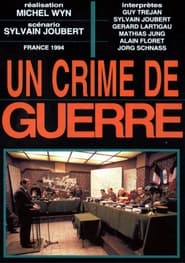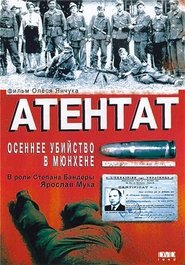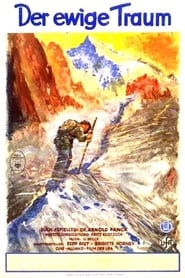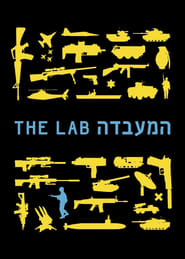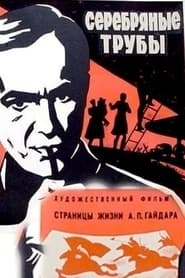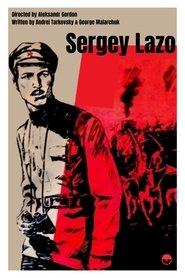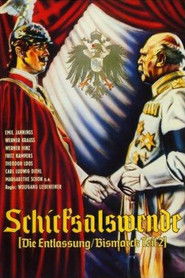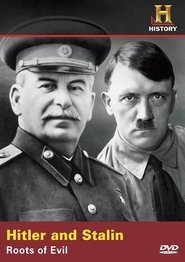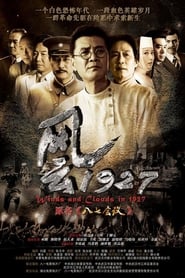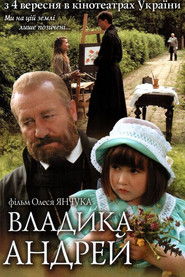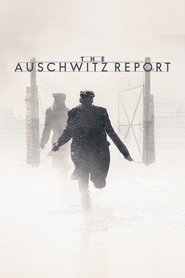Popular History Movies - Page 275
-
Un crime de guerre
1994
Un crime de guerre
1994
A film that relates the trial in Bordeaux in January 1953 of some of the participants in the Oradour-sur-Glane massacre of June 10, 1944. -
Assassination: An October Murder in Munich
1995
star 7The film covers the period from 1947, when UPA troops broke with fights abroad, and to autumn of 1959, when in Munich KGB agent Bohdan Stashynskyi killed Stepan Bandera. -
Der ewige Traum
1934
Der ewige Traum
1934
star 6.5At the end of the 18th century, the wealthy French scholar Saussure comes to a small Alpine village and offers 1,000 pieces of gold to anyone who can lead him to the summit of Mont Blanc. The young farmer's son Jacques Balmat wants to take on the dangerous task, even though his father has told him from an early age about the mighty mountain spirits who guard a legendary treasure of gold on the mountain peak. -
The Lab
2013
The Lab
2013
star 5.6Since 9/11, the Israeli arms industries are doing bigger business than ever before. Large Israeli companies develop and test the vessels of future warfare, which is then sold worldwide by private Israeli agents, who manipulate a network of Israeli politicians and army commanders, while Israeli theoreticians explain to various foreign countries how to defeat civil and para-military resistance. All based on the extensive Israeli experience.The film reveals The Lab, which has transformed the Israeli military occupation of Gaza and the West Bank from a burden to a marketable, highly profitable, national asset. -
March of Happiness
1999
March of Happiness
1999
star 5.81945-1947, Taiwan. A teenage couple were deeply in love despite objections from the girl’s family. Their tragic story is played out in travelling troupes, tea-houses and western-style cafes, with the backdrop of Japanese occupation and the 28 February Incident. -
The Day Hitler Died
2015
The Day Hitler Died
2015
star 6.8The story of Hitler’s final hours told by people who were there. This special features exclusive forgotten interviews, believed lost for 65 years, with members of Hitler’s inner circle who were trapped with him in his bunker as the Russians fought to take Berlin. These unique interviews from figures such as the leader of the Hitler Youth Artur Axmann and Hitler’s secretary Traudl Junge, have never before been seen outside Germany. Using rarely seen archive footage and dramatic reconstruction, this special tells the story of Adolf Hitler’s final days in his Berlin bunker. -
Cafe Moscow
1936
Cafe Moscow
1936
About a man's disappointment in love, and this provides the foundation for the upcoming trial of a much more significant love. The scene of the fatal meeting, the bar, which is a kind of world-model, and its environment: a fort under siege, from where it's almost impossible to escape... -
Silver Trumpets
1971
Silver Trumpets
1971
The former Red Army commander begins by reading the first manuscripts to his friends, and soon becomes a famous children's writer. -
Young Stalin
0000
Young Stalin
0000
A diminutive twentysomething 'Soso' (a nickname given to him by his mother) leads a group of revolutionaries in a massive bank heist to rob the Imperial Bank in 1907 Tbilisi. In the process, Soso becomes the man known as Joseph Stalin. -
Sergey Lazo
1968
-
Quezon's Game
2019
Quezon's Game
2019
star 6The film centers around Philippine President Manuel L. Quezon and his plan to shelter Jews in the Philippines who were fleeing from Nazi Germany during the World War II era. -
The Dismissal
1942
The Dismissal
1942
star 5.4German chancellor Otto von Bismarck promises the dying emperor Wilhelm I. to be loyal to his grandson. But the gap between young Kaiser Wilhelm II. and old Bismarck is rapidly widening. It soon appears that an era is coming to an end. -
Os Senhores da Guerra
2016
star 5During the Rio Grande do Sul revolution of 1923, two brothers fight on opposite sides. -
Hitler & Stalin: Roots of Evil
2004
star 8An examination of the paranoia, cold-bloodedness, and sadism of two of the 20th century's most brutal dictators and mass murderers: Adolf Hitler and Joseph Stalin. -
Metropolitan Andrey
2008
Metropolitan Andrey
2008
star 6.2Story about Metropolitan of Ukrainian Greek Catholic Church Andrey Sheptytsky who opposed repressive totalitarian regimes of Stalin and Hitler and chose the path of service to God and people. -
The Auschwitz Report
2021
The Auschwitz Report
2021
star 6.3This is the true story of Freddy and Walter – two young Slovak Jews, who were deported to Auschwitz in 1942. On 10 April 1944, after meticulous planning, they manage to escape. While the inmates they had left behind courageously stand their ground against the Nazi officers, the two men are driven on by the hope that their evidence could save lives. -
Baseballschlägerjahre - Die Wendegeneration und rechte Gewalt
2020
star 6After the end of the GDR, thrashings, threats and hunts were part of everyday life. In the years after the reunification of the early 1990s, hatred, racism and violence against foreigners and supporters of leftist ideology broken out in Eastern Germany. Most of those involved was young people. In many cities and towns, the streets and squares belonged to the right-wing scene, organized in neo-Nazi comradeships. Bomber jackets, combat boots and the Hitler salute showed the intimidated rest where they were. The baseball bat was a popular weapon. There were riots, attacks on asylum seekers' homes, mass brawls and hunt downs to those who look or think differently. It doesn't took long and the first deaths were to be mourned. The majority of the Eastern German population looked the other way or even applauded the deeds. A bad omen for the political development of later years. In six film segments, a team of authors take a look at the time reflected in interviews with contemporary witnesses.
 Netflix
Netflix
 Amazon Prime Video
Amazon Prime Video
 Apple iTunes
Apple iTunes
 Apple TV Plus
Apple TV Plus
 Disney Plus
Disney Plus
 Google Play Movies
Google Play Movies
 Paramount Plus
Paramount Plus
 Hulu
Hulu
 HBO Max
HBO Max
 YouTube
YouTube
 fuboTV
fuboTV
 Peacock
Peacock
 Peacock Premium
Peacock Premium
 Amazon Video
Amazon Video
 The Roku Channel
The Roku Channel
 AMC+
AMC+
 Kocowa
Kocowa
 Hoopla
Hoopla
 The CW
The CW
 Vudu
Vudu
 Starz
Starz
 Showtime
Showtime
 PBS
PBS
 Pantaflix
Pantaflix
 FXNow
FXNow
 Tubi TV
Tubi TV
 Kanopy
Kanopy
 Comedy Central
Comedy Central
 Crunchyroll
Crunchyroll
 Microsoft Store
Microsoft Store
 Redbox
Redbox
 Sun Nxt
Sun Nxt
 ABC
ABC
 DIRECTV
DIRECTV
 Crackle
Crackle
 Fandor
Fandor
 Plex
Plex

